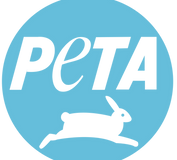Find a Wildlife Rehabber Near You

Have you discovered wildlife in need near you?
It is important to contact a licensed wildlife rehabber right away.
The Squirrel Refuge is located in Vancouver, Washington within the Portland, Oregon metropolitan area.
Not near us? Please browse the links below to find a rehabber near you.
Contacting a Rehabilitator
Be prepared to receive an answering machine since few resources have dedicated reception services.
When leaving a message, slowly, calmly and clearly state your name, telephone number, the type of animal (preferably the species), and the situation that has lead you to believe the animal needs help. Provide this information before any other information.
All rehabilitators have received long emotional messages where the caller forgets to leave critical information like a name or contact number, or the information is so rapidly spoken as to be unintelligible. Contact more than on rehabiitator if you have that luxury to get the most rapid help available. If you don’t hear back within a few hours, call again. In some cases, getting help may take several hours to days. Refer to the Orphan Care or Adult Care links.
When you do talk to a person be prepared to discuss all food, drink and medical treatments you have provided.
Nuisance Wildlife
If you are calling about a nuisance wildlife situation, a rehabilitator can usually offer good advice on how to get the animal to move along on its own; however, we do not pickup and relocate healthy wildlife.
It is usually pretty easy to get wildlife to move on of its own accord (and much, much cheaper for you!) When sources of food and housing are eliminated and a little gentle persuasion (aka harassment using a light or radio) is applied. If you have wildlife living in your attic or other living space, you must repair entry points before the next wild animal moves in. Nature abhors a vacuum and goes where it can - particularly if its dry and warm prime real estate!
Why is it so Hard to Get Help?
Most people are surprised to find that there are so few resources for wildlife. There is no agency, like animal control, that will come out free of charge and pickup injured or orphaned wildlife. In Washington state this role is done completely by volunteers who cannot charge for their services and frequently receive no funding from the state. Most licensed rehabilitators have full time jobs, and spend their own time and money (thousands of hours and dollars per year) to care for distress wildlife. Please support through financial donations or donations of goods to these valuable community resources.
What! They Didn't pickup?
In almost all cases, you will need to capture and transport injured and orphaned wildlife to the rehabilitator. This may seem like a huge inconvenience, but keep in mind the person who takes the animal usually has no time to spare. Rehabilitators spend long hours caring for wildlife, being 100% responsible for their needs and associated costs - for food, housing, medical needs - long after they’ve been dropped off. Please do not call and leave a message like, “There is a pigeon with two broken legs in a dumpster at Wendy’s eating garbage” (in a location 40 miles away) . Please collect the animal (if you can safely do so) and bring it to the someone that can help it. Leaving a message about the suffering of an animal that we don't have the time or a way to collect is one of the saddest calls most rehabilitators can get. Please remember, we can’t do it alone, we need you to do your part.
A Few Words about ‘Mother Nature’
She is a mean mother! Some people don't want to go through the trouble to find a rehabilitator and then take the animal to them which in some cases can mean hours of driving, deciding its best to let ‘nature take its course.’
You may elect to take that stance but don’t fool yourself. Nature is not kind. Orphaned babies starve to death, die from dehydration and exposure, alone without their mother. Injured animals may succumb to infection, most certainly experience fear and pain, some dragging themselves great distances in search of shelter, food or a little water. Please take suffering animals to the humane society for euthanasia if you are unwilling to take them to a rehabilitator.
If it is in your power to reduce suffering and it is the compassionate thing to do, then please take the time to do it. The few rehabilitators there are cannot do it alone.






